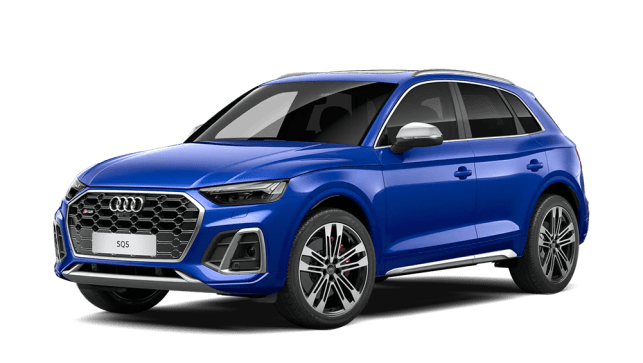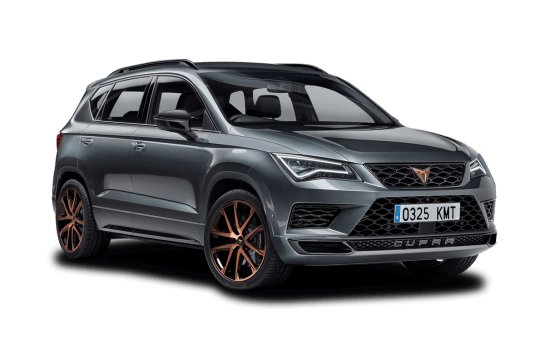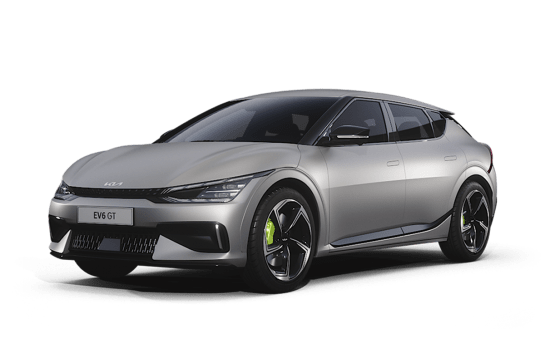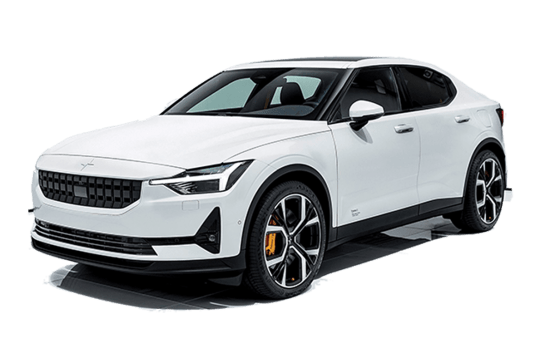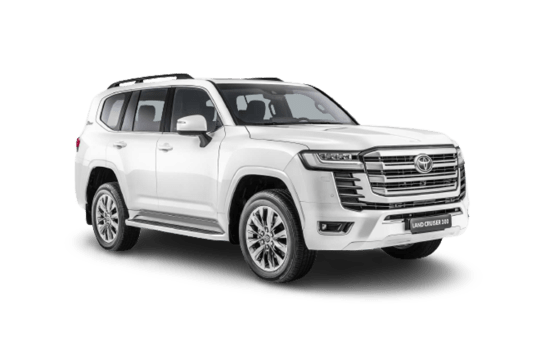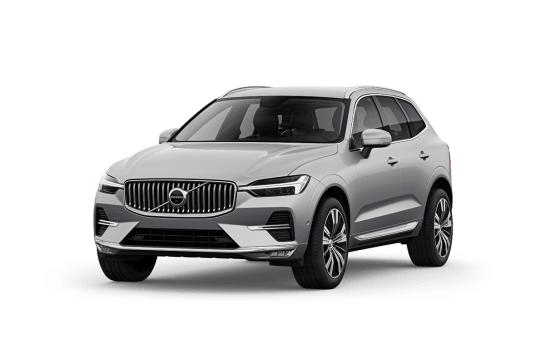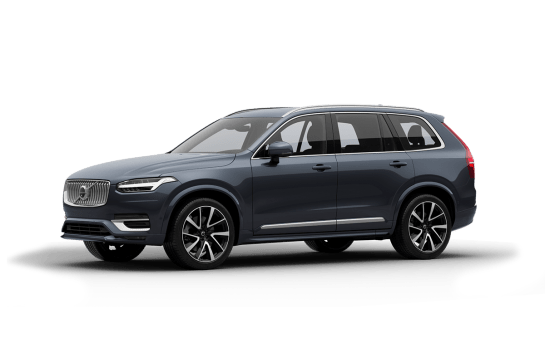
Land Rover Discovery VS Hyundai Santa Fe
Land Rover Discovery
Likes
- Comfortable on-road
- Capable off-road
- Air suspension
Dislikes
- Price-tag
- Wheels and tyres not suited to off-roading
- Spongy brakes
Hyundai Santa Fe
Likes
Dislikes
Summary
Land Rover Discovery
The Land Rover Discovery is a bit of a classic with 4WDers – and while it’s never attracted a massive and passionate fanbase like its hard-core stablemate, the Defender, it’s done okay for itself.
There used to be a clear distinction between the Discovery and the Defender. The Discovery was always your Landie of choice if you were after a luxurious smooth-riding 4WD, while the Defender was a gruff, rough-riding, hard-core adventure machine.
Read More about the Discovery
Well, with the new Defender being so refined, so well-appointed, so comfortable and so nice to drive – it’s almost like a Discovery in disguise – is the 22MY Discovery even relevant any more?
More importantly, does it make sense as your next seven-seat 4WD wagon?
Read on.
| Safety rating | |
|---|---|
| Engine Type | 3.0L turbo |
| Fuel Type | Diesel |
| Fuel Efficiency | 7.5L/100km |
| Seating | 7 seats |
Hyundai Santa Fe
We’re comparing the Kia Sorento Hybrid in the highest spec GT-Line grade and the Hyundai Santa Fe Hybrid in the range-topping Calligraphy spec. Two SUVs so similar they’re pretty much the same, just wearing different clothes.
But there are a couple of crucial differences that might be deal breakers for you when it comes to choosing one over the other. But first, let me give you a bit of background.
The Hyundai Santa Fe and Kia Sorento are direct rivals, but in a sibling rivalry sense as well because both brands are related through a parent company which allows them to share engines and technology, even standard features like stereos and touchscreens.
Read more about
- 'The industry's all about hybrid': Hyundai Australia boss confirms importance of new Tucson Hybrid in taking the fight to the Toyota RAV4 Hybrid, joining Kona, Santa Fe and i30 sedan hybrid models to challenge market leaders
- Updated family favourite spied: 2025 Kia Sportage facelift draws closer as European version of Toyota RAV4 and Mitsubishi Outlander spotted testing - report
- Best SUVs arriving in 2024
So, what you’re really looking at is the best SUVs Hyundai and Kia could independently develop using pretty much the same parts.
The Sorento was updated this year with new tech, improved suspension and some cosmetic changes to keep it looking new.
Thing is, the Santa Fe hybrid in this comparison is the all-new, latest generation version that brings with it a more modern design inside and out and even some safety equipment the Sorento doesn’t have.
And at this point, I'm duty-bound to tell you the Santa Fe has airbags completely covering the third row while the Sorento doesn’t. Didn’t want to bury such vital information further down in the review in case you don't get that far.
Well, with that… let’s get into it.
| Safety rating | — |
|---|---|
| Engine Type | 1.6L turbo |
| Fuel Type | — |
| Fuel Efficiency | 5.6L/100km |
| Seating | 6 seats |
Verdict
Land Rover Discovery8/10
The Land Rover Discovery D300 S is a great family-friendly 4WD wagon.
It’s quiet, refined, and supremely well appointed; it’s also very nice to drive on-road and it’s a lot of fun – and very capable – off-road.
It’s packed full of driver-assist tech and its Pivi Pro system is a real treat to use once you’ve mastered the art, which doesn’t take long.
But you could say all of those same things about the new Defender.
So, is the Discovery still relevant? I reckon it is … at least for the time being.
Hyundai Santa Fe/10
The Hyundai Santa Fe Calligraphy Hybrid and Kia Sorento GT-Line Hybrid are both good value for money, plush, practical and super fuel efficient.
The Santa Fe, however, presents a more compelling case based on its third-row airbag coverage, clever storage and how easy it is to drive.
| Santa Fe Hybrid Calligraphy | Sorento Hybrid GT-Line | |
| Price and features | 9 | 9 |
| Design | 8 | 8 |
| Practicality | 9 | 7 |
| Under the bonnet | 8 | 8 |
| Efficiency | 9 | 9 |
| Driving | 9 | 8 |
| Safety | 9 | 8 |
| Ownership | 8 | 8 |
| Total Score | 8.6 | 8.1 |
Design
Land Rover Discovery
As always, I’ll avoid waxing lyrical about the styling of a vehicle – suffice to say, it looks good.
In terms of dimensions, this Discovery is 4956mm long (with a 2923mm wheelbase), 2220mm wide and 1888mm high.
It has a listed kerb weight of 2437kg.
Hyundai Santa Fe
The Santa Fe and Sorento’s standard features are almost identical but these two SUVs couldn’t be more different in their designs.
The Santa Fe is the newer of the two and this fifth-generation model only arrived in Australia this year, so its boxy styling is more on-trend than the Sorento's design which is a little more rounded.
The Santa Fe’s more blocky build looks good to my eyes but more than a few in the CarsGuide office think the 2015 Land Rover Discovery must have been an inspiration, or perhaps it's just a coincidence.
In Hyundai’s defence the rear of the Santa Fe looks nothing like a Land Rover. Its design with the low placed tail-lights and bloated tailgate looks more awkward than me attempting to high-five someone. Apparently if you look at their elbow it helps. High-fiving that is, not the design of the Santa Fe.
This current-generation Sorento arrived in Australia in 2020 and while an update earlier this year added a few cosmetic styling tweaks to try to keep it looking fresh, I think it's a tough looking, handsome SUV even if the smoother, more rounded design is starting to date.
The LED daytime running lights on both cars are distinctive. The Sorento’s, which skirt the bonnet edge before dropping down the side of the headlights, is a Kia design signature seen across its line-up from the tiny Picanto to the EV9 electric SUV.
The Santa Fe’s 'H' design is unique to Hyundai, a theme that’s mirrored in its tail-lights. The Sorento’s Ford Mustang-style tail-lights look good, but could do with an update.
The interiors are just as different as the exteriors with the Santa Fe’s cabin looking more modern and luxurious in its design with some quirky styling touches (Morse Code dots on the steering wheel anybody?) while the Sorento has a sporty and plush but more conservative look and feel.
These are large SUVs with almost matching dimensions. As you can see in the table below the Santa Fe is only slightly taller and longer than the Sorento.
| Santa Fe Hybrid Calligraphy | Sorento Hybrid GT-Line | |
| Score | 8 | 8 |
Practicality
Land Rover Discovery
The interior has a real premium feel about it, but it still serves as a very practical space.
The third-row seats can be either manually folded down into the floor to use that area as cargo space, or lifted up into a seating position.
There is a load-space cover, light, luggage tie-downs, bag hook and 12v in the rear, and two USB charging sockets for the third-row passengers.
The second row is a 60:40 electric-folding set-up with manual slide and powered recline, centre headrest and armrest, as well as map pockets, and door-moulded recesses. Second-row passengers get two USB C and one USB A charging points, air vents, air-con controls and more.
The front seats are 14-way electrically-adjustable with captain’s armrest, grained leather seat facings with Ebony interior; the Pivi Pro 11.4-inch touchscreen with digital radio, Apple CarPlay and Android Auto; as well as one USB A and three USB C points.
The Discovery has a fixed front and rear panoramic roof.
Hyundai Santa Fe
Not all SUVs are created with equal practicality and even though the Santa Fe and Sorento are much the same in many ways one of these vehicles is more spacious, has better storage and a bigger boot. Oh, and it has two wireless phone chargers, not one.
Yes, it’s the Santa Fe. Not just the more practical one because it’s shaped like a box, although that does have something to do with it. What makes the Santa Fe so much more practical is the interior design with storage more of a priority.
Look at the area under the centre console - there’s a tray big enough for a backpack or handbag. And above it are the two wireless phone chargers, USB ports and cupholders.
There’s the glove box, of course, but above that is a shelf with a grippy surface for keys or wallets and purses. And above that is one of the weirdest contraptions I’ve seen not just in a car, but anywhere - a sterilisation compartment.
It looks like another glove box but it’s actually a space to put anything you want decontaminated - freed from bacteria and germs using UV-C radiation. Stop looking at me like that, I’m serious.
You put your phone in, shut the door, press the UV-C button on the dashboard and 10 minutes later - bing! - your phone is sanitised. Have a look at the video we've made if you still don’t believe me.
The second row of the Santa Fe has excellent legroom, even for me at 189cm tall, and good headroom, too.
For storage, I love the way the centre console box between the driver and front passenger can also be opened from the back by the second row passengers. And below that is a long, deep drawer.
The second row also has door pockets, cupholders and directional air vents, plus USB ports in the sides of the front seats.
Third row seats in SUVs are never the most accommodating for someone my height, but the Santa Fe’s offer good leg and headroom for children. There’s also a USB port on either side along with air vents with fan control and cupholders.
Worth noting the Santa Fe’s large and tall rear doors made putting our toddler into her car seat easier than in the Sorento with its more angular aperture.
The Santa Fe and Sorento have dark-tinted privacy glass for the rear windows and pull-up sunshades.
The six-seat option for the Santa Fe reduces this SUV’s practicality in a couple of ways. Obviously, you lose the capability of carrying seven people, but not being able to have a middle section to slide across to the other side or even just place items on is a problem.
A hire car company might prefer the six-seat option, but if you have a family the seven-seater is the way to go. Not only does it cost less, it's more practical.
The Sorento is by no means impractical, but compared to the Santa Fe there are fewer storage areas in what feels a more compact cabin.
Up front in the Sorento there’s a wireless phone charger forward of the shifter but it’s in a small hidey hole which makes retrieving the phone tricky.
There are USB ports there, too, as well as cupholders and big door pockets. You won’t find a floating centre console with storage underneath as in the Santa Fe, or shelves and there's no sign of a sterilisation compartment.
In the second row the Sorento has little buckets in the doors, bottle holders and more cupholders in the centre folding armrest. USB ports are in the sides of the front seats along with power adjustment controls.
There’s good legroom and headroom in the second row, and directional air vents in the rear of the centre console.
The third row is on the cramped side for me, but most third rows are and they’re really for kids. My eight-year old son wanted me to let you know the windows for back seats in the Sorento are tiny, while the Santa Fe has much larger windows. There are still storage wells, USB ports and fan controls with air vents, though.
The Santa Fe and Sorento both have small cargo capacities when the third row is in place but there's enough space for one carry-on luggage-sized suitcase. With the third-row seats folded flat the Sorento has a volume of 608 litres while the Santa Fe is slightly larger at 628 litres.
| Santa Fe Hybrid Calligraphy | Sorento Hybrid GT-Line | |
| Score | 9 | 7 |
Price and features
Land Rover Discovery
For reference, this Discovery D300 S has a price-tag of $101,875* (plus on road costs).
As standard, the seven-seat Discovery’s list of features is considerable, as it should be at this price-point, and includes a 11.4-inch Pivi Pro multi-media touchscreen (like an all-in-one vehicle operating system, but more about it later), Apple CarPlay and Android Auto, fixed sunroofs, 3D Surround Camera, height-adjustable air suspension, 20-inch five-split-spoke, gloss silver wheels, and a whole lot of driver-assist tech.
There are also plenty of optional features available, which obviously push the price up the more you add to your Disco.
Our test vehicle was equipped with a stack of those extras and, because of that, its price-tag was $110,910* (plus on-road costs). (Prices correct at time of writing.)
Optional features on our test vehicle include Advanced Off-Road Capability Pack ($3970, twin-speed transfer box (high/low range), All Terrain Progress Control, Terrain Response 2, Configurable Terrain Response; Active Rear Locking Differential $1110; Tow hitch receiver $1000; Leisure Activity Key $960; Black Roof Rails $940; Privacy glass $920; Premium carpet mats $640; and wireless device charging $455.
By the way, the Discovery is available in a variety of colours including Fuji White, which is on our test vehicle, as well as versions of black, blue, grey and silver.
Hyundai Santa Fe
We tested the top-of-the-range Hyundai Santa Fe Hybrid here. It’s the Calligraphy grade with all-wheel drive and although it comes standard with seven seats you can also option it with six (as per our test car) and this means the bench seat in the second row is replaced by two 'captains chairs' for a more luxurious feel.
The list price for the Santa Fe Hybrid Calligraphy all-wheel drive is $75,000 and $500 for the six-seat option, so the MSRP comes out as $75,500.
The Kia Sorento Hybrid we tested was also the fancy one in the range. It’s the GT-Line and also all-wheel drive with a list price of $73,330.
As well as sharing a lot of the same engineering these SUVs have nearly identical standard features lists.
Standard on the Sorento GT-Line Hybrid and Santa Fe Calligraphy Hybrid are LED headlights and LED running lights, roof rails, proximity unlocking, privacy glass, rear side window sun blinds and split-style sunroofs.
Both cabins feature Nappa leather upholstery, the front seats are heated and ventilated, while the second-row outboard seats are heated. There’s dual-zone climate control, too.
You’ll find the same curved, double 12.3-inch displays for media and instruments in each, as well as head-up displays. There’s sat nav, wireless Apple CarPlay and Android Auto, digital radio and both have 12-speaker Bose sound systems.
Both feature wireless phone charging but only the Santa Fe can charge two phones wirelessly at the same time. The Santa Fe also has a sterilisation compartment. Sounds weird and is weird… I’ll show you how it works in the practicality section.
| Santa Fe Hybrid Calligraphy | Sorento Hybrid GT-Line | |
| Score | 9 | 9 |
Under the bonnet
Land Rover Discovery
The Discovery has a 3.0-litre inline six-cylinder twin-turbo-diesel engine – producing 220kW at 4000rpm and a whopping 650Nm at 1500-2500rpm – working with a mild hybrid system.
Those impressive power and torque figures don’t tell the whole story of just how well the Disco’s engine is able to punch this big unit along the road at a comfortable clip and – bonus – its chunk of torque, useable across a decent rev range, comes in very handy when off-roading.
It has an eight-speed automatic transmission and an all-wheel drive system.
Hyundai Santa Fe
The Santa Fe hybrid and Sorento hybrid share very similar drivetrains - they both have a four-cylinder petrol engine paired with an electric motor and a six-speed automatic transmission with all-wheel drive.
While the drivetrains are virtually identical (because both companies share engines, transmissions, motors and other engineering technology) Hyundai says the hybrid system in the Santa Fe is a generation ahead of the Sorento's.
Hyundai claims its set-up produces more power and torque, but we felt no noticeable difference in the outputs when we drove them back-to-back. You can see all the output figures in the table below.
These hybrids are also not plug-in hybrids - they will recharge through regenerative braking, which means you don’t have to worry about charging - it’ll do it for you automatically. It’s the easiest kind of hybrid to live with.
So, how much fuel will you use? Let’s talk about that.
| Santa Fe Hybrid Calligraphy | Sorento Hybrid GT-Line | |
| Score | 8 | 8 |
Efficiency
Land Rover Discovery
Fuel consumption is listed as 7.5L/100km on a combined cycle.
Fuel consumption on this test was 9.8L/100km. That’s sound considering I did a lot of high- and low-range 4WDing on this test and the Disco is quite a hefty unit.
The Land Rover Discovery D300 S has an 89-litre fuel tank, so, going by those fuel-consumption figures, I’d expect an effective touring range of about 860km, but remember that figure includes a built-in 50km safe-distance buffer.
Hyundai Santa Fe
We take testing the manufacturer’s fuel efficiency claims seriously and don't take their word for it.
We filled the fuel tanks of the Sorento and Santa Fe with the recommended 91 RON petrol, then set out on a 100km test covering city and urban traffic, motorways and country roads to approximate the combination of conditions an owner would encounter. We then measured the amount of fuel used over the distance to calculate the fuel consumption.
As you can see from the tables below we achieved better results than the manufacturer claims and both of these hybrid SUVs use almost exactly the same amount of fuel. These are large SUVs consuming about 5.0L/100km. That’s outstanding fuel economy.
Not having to plug these kinds of hybrids into an external power source to charge makes them very easy to use. There’s nothing to do, they charge automatically and after a while you’ll just forget it's a hybrid.
| Santa Fe Hybrid Calligraphy | Sorento Hybrid GT-Line | |
| Score | 9 | 9 |
Driving
Land Rover Discovery
The Discovery is very impressive on-road. No surprise really as it has always had a reputation as a comfortable on-road cruiser – and it's lost nothing in this latest iteration.
It is a smooth driving experience: quiet, refined and you suffer little to no noise from outside intruding into the cabin.
The seats are very comfortable and supportive, and that makes it perfect for long-distance trips.
The straight-six engine and eight speed auto are a nice combination, quietly effective, and well-managed.
Acceleration is good with sharp throttle response, so you can crack on the pace when you need to, say, for instance, from a standing start or when you need to overtake a vehicle.
In terms of overall driving experience, there’s nothing too outrageously exciting or dynamic on offer here, because this is a large SUV, but it’s always comfortable and it’s lively enough if you want to give it the boot. There are paddle shifters if you want to get fancy with your up- and down-shifting.
It’s not all good news: visibility from the driver’s seat is a bit pinched out the rear of the Discovery (due to its styling); there is pronounced body-roll through corners; the brakes are quite spongy, with a real delayed-action feel about them; ride is a tad harsh because you are rolling along on 20-inch tyres and rims, which is something I’m not so used to; and, the steering column is manually adjustable only, which I reckon is a bit slack for such a pricey vehicle.
Hyundai Santa Fe
You’d imagine these two closely-related SUVs with the same engines, same vehicle platform and same standard features would drive the same.
They don’t. We drove them back-to-back for two days on motorways at 110km/h, course-chip country roads and even at walking pace around car parks.
Both are extremely comfortable and composed across every type of road condition. The Sorento, however, has better handling for a sportier drive while the Santa Fe has a ‘floatier’ feel for a more luxurious experience.
An interesting fact for you is that Kia has a local engineering team which tests and develops the Sorento’s suspension for Australian conditions, constantly improving the ride and handling.
The latest retuning was done for this version of the Sorento which was updated this year.
Hyundai also had a local engineering team but doesn’t anymore. Instead, the local subsidiary is most often given a choice of suspension tunes used in other markets in the hope it will work well on Australian roads. The Santa Fe has a 'global' tune.
The hybrid powertrains feel equally matched despite the Hyundai’s slightly higher combined output. Neither feels underpowered and for regular duties they perform well with a smooth transition from motor to engine that only becomes noticeable on hills where electric power isn't enough and petrol has to come to the rescue with a relatively abrupt shove.
If you’re after a sporty experience the Sorento is for you, but I found the Santa Fe’s higher driving position, light steering, more luxurious ride and better visibility through larger windows makes for an easier SUV to drive day in and day out.
| Santa Fe Hybrid Calligraphy | Sorento Hybrid GT-Line | |
| Score | 9 | 8 |
Safety
Land Rover Discovery
The Land Rover Discovery D300 S has the maximum five-star ANCAP safety rating, based on 2017 testing.
As standard, its suite of driver-assist tech includes AEB, adaptive cruise control, blind-spot assist, lane-keep assist, traffic sign recognition, front and rear parking aids, and trailer stability assist (TSA).
Don’t forget the Discovery’s terrain response system, and front and rear diff-locks.
Hyundai Santa Fe
At the start of this review I pointed out some crucial safety information about these SUVs. This new-gen Santa Fe has side curtain airbags which fully cover the occupants in the third row, while the Sorento does not.
For many parents, including me, that could be a deal breaker especially if that's all that separates these two similar SUVs.
Still, the Sorento is a very safe vehicle and scored the maximum five-star ANCAP assessment in 2020. The Santa Fe is still so new that its ANCAP rating isn’t in yet, but there’s nothing to suggest it wouldn’t score five stars, too.
Both SUVs have a large amount of advanced safety technology including AEB which can detect pedestrians, cyclists and other cars, lane keeping assistance, blind-spot warning and rear cross-traffic alert with braking.
For child seats both cars have two ISOFIX points in the second row and two in the third. There are also top tether anchor points for each of the seats in the second and third rows.
Both provide full-sized alloy wheels located under the vehicle.
| Santa Fe Hybrid Calligraphy | Sorento Hybrid GT-Line | |
| Score | 9 | 8 |
Ownership
Land Rover Discovery
The Discovery has a five year/unlimited km warranty with five years roadside assistance.
The service plan applies over five years/130,000km (whichever occurs first) with a cost of $2650.
Hyundai Santa Fe
The Sorento is covered by Kia’s seven-year, unlimited km warranty. Servicing is annual or every 15,000km and over five years the cost averages out to be about $500 per year.
The Santa Fe has Hyundai’s five year, unlimited km warranty and services are recommended annually or every 10,000km, Service cost also averages around $500 each year over five years.
| Santa Fe Hybrid Calligraphy | Sorento Hybrid GT-Line | |
| Score | 8 | 8 |






